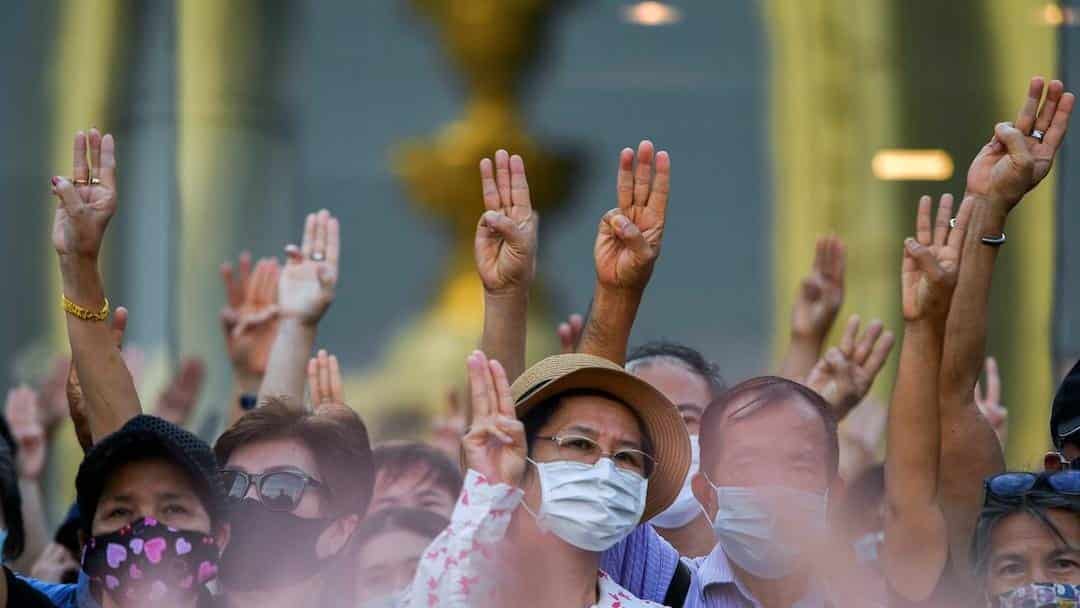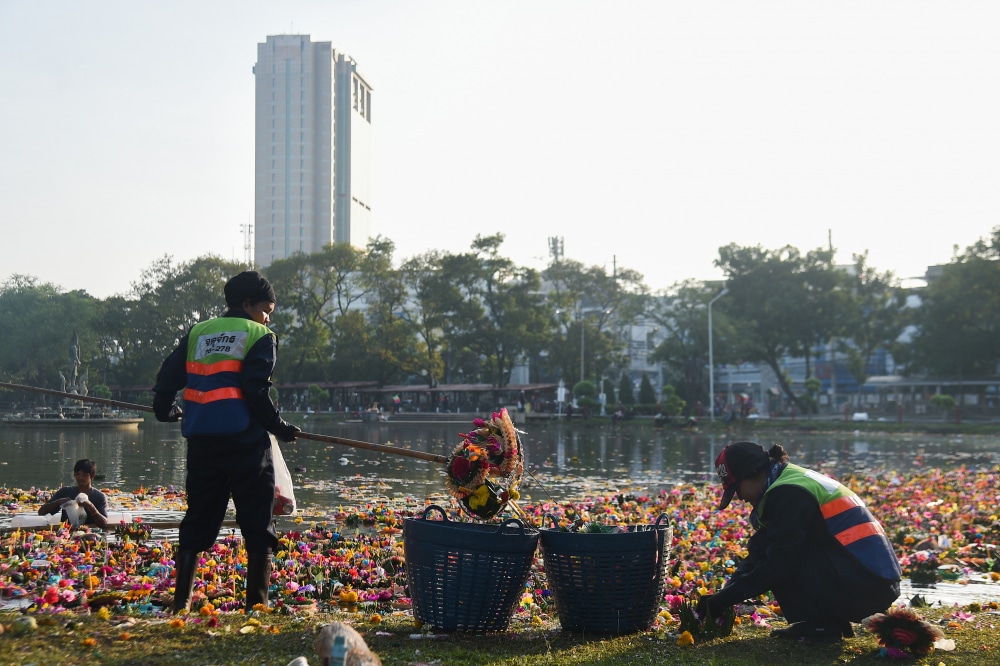Thailand’s Constitutional Court suspended reformist Pita Limjaroenrat on Wednesday, dealing another setback to his bid to become the country’s next leader following a shock election victory.
The court’s suspension came just as Pita was returning to parliament for another day of deliberation on whether he could become prime minister after his initial effort failed by 51 votes last week.
Pita’s Move Forward Party (MFP) has ridden high on the aspirations of young and urban Thais tired of the army’s control for nearly a decade, but its efforts to create a government have stalled since the May elections.
The conservative elite in Thailand is adamantly opposed to the party’s economic reform platform and pledge to relax the kingdom’s severe royal defamation rules.
The country’s Constitutional Court announced on Wednesday that it would hear a case on whether Pita should be removed from parliament entirely for owning shares in a media company, and ordered him to leave the assembly in the meanwhile.
“It was ordered that the respondent halt his position beginning July 19 and continuing until the Constitutional Court issues its verdict,” the court said in a statement.
The Thai constitution prohibits lawmakers from having interests in media enterprises, notwithstanding the fact that the television station in question has not broadcast since 2007.
Pita, a Harvard-educated heir to a family-run agrifood firm, claims the shares were passed down from his father.
Pita is still qualified to run for prime minister under Thai law, but he must leave the lower house and will be unable to vote.
“If you vote according to the voice of the people, your name will be engraved in this kingdom with tremendous honour and pride,” he tweeted this morning, in a desperate plea for help.
Few anticipate his party to make up the difference from last week, and legislators affiliated with the military promptly forced a debate on whether the legislation permitted Pita to be considered a second time.
Thailand’s senate is loaded with military appointees, with only 13 of the country’s 249 senators voting for Pita last week, and his only realistic road to power is to successfully court many more members of that chamber.
“I don’t think the Senate will be gutsy and courageous enough to accomplish that,” Naresuan University political analyst Napisa Waitoolkiat told AFP.
Pita stayed in the chamber immediately following the suspension. If his second attempt fails, he has promised to step aside to allow a coalition partner to establish a government.
‘Personal advantages’
Pita’s candidature has also been hampered by other obstacles.
The court has also consented to hear a complaint arguing that MFP’s campaign promise to change Thailand’s royal defamation legislation amounts to an attempt to “overthrow” the constitutional monarchy.
Pita’s party has rejected vocal criticism to its vow to amend the law, which allows convicted monarchy detractors to face up to 15 years in prison.
The MFP’s reformist agenda also threatens family-owned business monopolies, which hold a disproportionate role in the kingdom’s economy.
Pita admitted on Wednesday that MPs who reaped “personal benefits” from the current ruling, particularly those with stakes in strong Thai corporations, would vote against his party.
‘Justification for repression’
If Pita is unable to become prime minister, the coalition that supports him is expected to fall in line behind property mogul Srettha Thavisin, potentially relegating MFP to opposition.
Srettha’s Pheu Thai party is viewed as a vehicle for the Shinawatra political clan, which includes two former prime ministers deposed in 2006 and 2014.
But, as a successful entrepreneur well-liked by Thai business leaders, the 60-year-old is considered as a viable compromise that would pave the way for the coalition to gain office.
Prawit Wongsuwan, 77, a former Thai army leader who served as number two in the junta that took control in 2014, has also been proposed by parliament’s military bloc as a contender.
Thai voters overwhelmingly rejected army-backed parties in the May election, and political analyst Thitinan Pongsudhirak warned that the idea of a military presence in the next government might create a backlash in a country prone to political turmoil.
“If Move Forward is not included, there will almost certainly be protests… If demonstrators overreact, a Pheu Thai-led government would have some reason to crack down.”











